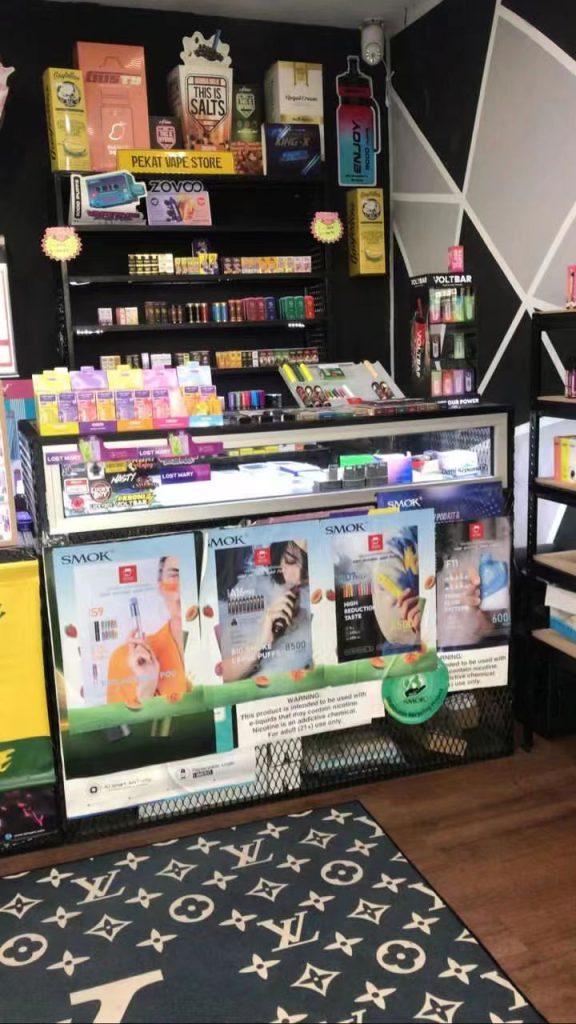According to the US richmondregister, a Kentucky bill aimed at curbing the use of vapes by minors, which has been criticized as hurting small businesses and inciting “monopoly”, was approved at the last minute on Thursday night.
The Senate Judiciary Committee earlier in the day made a round of changes to House Bill 11 — including reducing penalties for people under 21 who sell cigarettes — to the dismay of some advocates for tighter regulation for children. The bill, which will take effect next year, restricts vape products sold in Kentucky to having been approved by the FDA, applying for FDA approval or challenging an FDA veto.

Altria, the parent company of tobacco giant Philip Morris, lobbied for the Kentucky bill, according to Legislative Ethics Commission records. Altria, based in Richmond, Virginia, is pushing for similar bills in other states. Due to Altria’s aggressive strategy in promoting vape sales, it has launched a variety of vape products on the market that have been approved by the FDA. Opponents of the proposed bill, including Democratic Sen. David Yates of Louisville, argued it did not go far enough on enforcement to protect young people. He pointed out that “this bill will only create a monopoly of billionaire companies.”
Reaching FDA approval is a lengthy and expensive process. The agency has been hit with lawsuits from many vape manufacturers, who believe the FDA’s decisions are arbitrary. The bill’s sponsor, Rebecca Raymer, R-Morgantown, said the bill would help address the “rampant … vaping problem” in Kentucky schools.
“Most of what was brought were flavored disposable vapes made in China,” she said during a meeting of the Senate Judiciary Committee on Thursday. Just after 10 p.m. Thursday, the Senate voted 29 to 7 HB 11 passed with a vote of no and one abstention, with bipartisan support and opposition. Hours earlier, the bill unanimously passed the Senate Judiciary Committee after absorbing Senate Bill 344. The House of Representatives approved the changes by a vote of 64-27 around 11 p.m. The bill now goes to Gov. Andy Beshear for his veto or signature. If he vetoes it, the Legislature can override him.

In response, Sen. Brandon Storm, R-London, who sponsored Raymer’s bill, said in committee, “This is a question of ‘China or children.’ The decision is in your hands.” Speaking later on the Senate floor, Stone said: “The essence of this bill is to curb youth exposure to nicotine products as much as possible.”
HB 11 “What exactly does it include?” In addition to limiting vape sales to “authorized products” — those that have earned a “safety assurance certification” based on their status with the FDA — the bill also directs the secretary of state to maintain a list of retailers that sell authorized products, lawmakers hope. This can fill data gaps. Kentucky Adolescent Advocates has previously expressed support for HB 11, calling it a “critical first step” in “ensuring penalties for sales to minors.”
“We wanted to celebrate HB 11 as a victory for kids this year in the legislative session, but now it seems like the special interests of adults are the only ones,” Terry Brooks, executive director of Kentucky Youth Advocates, said Thursday. Be the winner.”
He said: “Kentucky’s kids are facing an vape epidemic that has been created by ‘big vape companies’ through marketing and sweetened vape cartridges. It is also clear that despite state and federal restrictions on the sale of cigarettes, 21-year-old prohibition law, teenagers have always been able to obtain vapes through local retail stores. What we don’t understand now is why the Kentucky Legislature will shift its focus to enforcing underage cigarette sales laws and taking meaningful steps to reduce the Teenagers experiment with these addictive nicotine products.”

This means that for vape manufacturers such as Veehoo, they need to go through a long and expensive approval process to meet the requirements of the bill. This is a huge burden for small vape businesses, as they may not be able to afford the expense and time required for approval.
In the future, the vape industry may face more states introducing similar bills. For veehoo and other vape manufacturers, they need to pay close attention to changes in regulations and adjust their strategies in a timely manner to comply with changing regulatory requirements. This also requires the joint efforts of all parties in the industry, including manufacturers, regulatory agencies and retailers, to ensure the compliance and safety of vape products.
All in all, Kentucky’s bill restricting the sale of vapes poses challenges to veehoo vapes and the entire industry. As a leading vape brand, Veehoo needs to actively respond to regulatory changes and take measures to ensure product compliance and safety. At the same time, all parties in the industry also need to strengthen cooperation to jointly promote the healthy development of the vape industry.
Tags: Kentucky limits vape sales,Kentucky vape bill,veehoo vape
